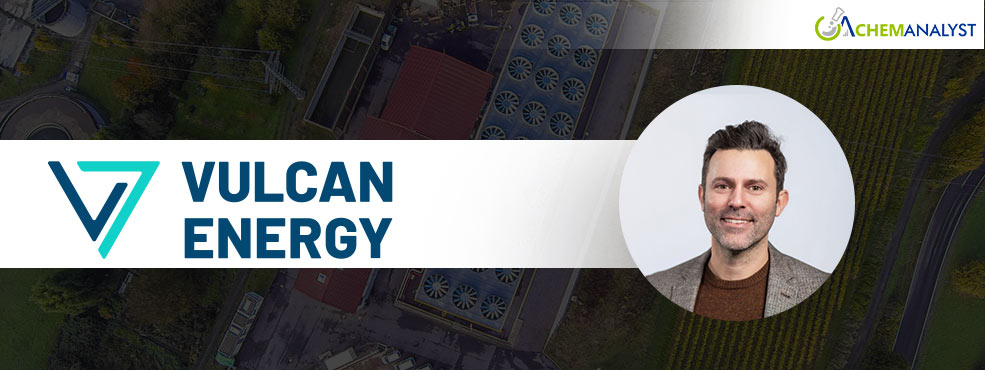Welcome To ChemAnalyst

Vulcan Energy has officially begun producing lithium hydroxide at its Central Lithium Electrolysis Optimisation Plant in Frankfurt, Germany, marking a significant milestone in sustainable lithium production. The plant’s first batch of lithium hydroxide was produced by processing high-purity lithium chloride, which is extracted from brines at the company’s adsorption-type direct lithium extraction optimisation plant. This achievement represents the first-ever domestically produced, sustainable lithium hydroxide in Europe, according to Vulcan Energy, which has a market capitalisation of $948.47 million.
The lithium hydroxide produced will be used in the battery-grade qualification process for Vulcan’s key automotive and battery partners, including Stellantis, Renault, LG, and Umicore. This is part of Vulcan’s broader plan to support the European electric vehicle (EV) market, with the phase one commercial plant aiming to produce 24,000 tonnes of lithium hydroxide per year. This production capacity will be enough to supply batteries for 500,000 EVs annually.
The company’s integrated approach combines upstream lithium extraction from naturally heated brine reservoirs using adsorption-type direct lithium extraction and downstream conversion to lithium hydroxide, all powered by electricity. Vulcan claims that this method represents one of the most cost-effective lithium chemical supply chains globally. It is also a key part of the company’s strategy to position itself as a low-cost, highly sustainable producer of lithium.
CEO Cris Moreno emphasized that integrating upstream and downstream operations is critical for building a resilient battery supply chain in Germany and Europe. He added that this process produces a low-cost, premium lithium product that can support Europe’s competitiveness in EV and battery manufacturing. One of the major advantages of Vulcan’s process is that it excludes the use of fossil fuels in both lithium extraction and conversion, resulting in one of the lowest carbon footprints in the industry. This aligns with the company’s commitment to reducing environmental impact.
In addition to lithium production, the phase one plants will also generate renewable heat and power as co-products, which will be used to supply local communities, further contributing to the decarbonization of nearby industries. Vulcan’s goal is to build the world’s first carbon-neutral, integrated lithium and renewable energy business, supporting the decarbonization of battery production and helping meet Europe’s growing demand for sustainable energy sources.
Overall, Vulcan Energy’s sustainable lithium production in Germany is a significant step towards securing a clean, domestic supply of lithium for Europe’s booming electric vehicle industry, while also contributing to global decarbonization goals.
We use cookies to deliver the best possible experience on our website. To learn more, visit our Privacy Policy. By continuing to use this site or by closing this box, you consent to our use of cookies. More info.
